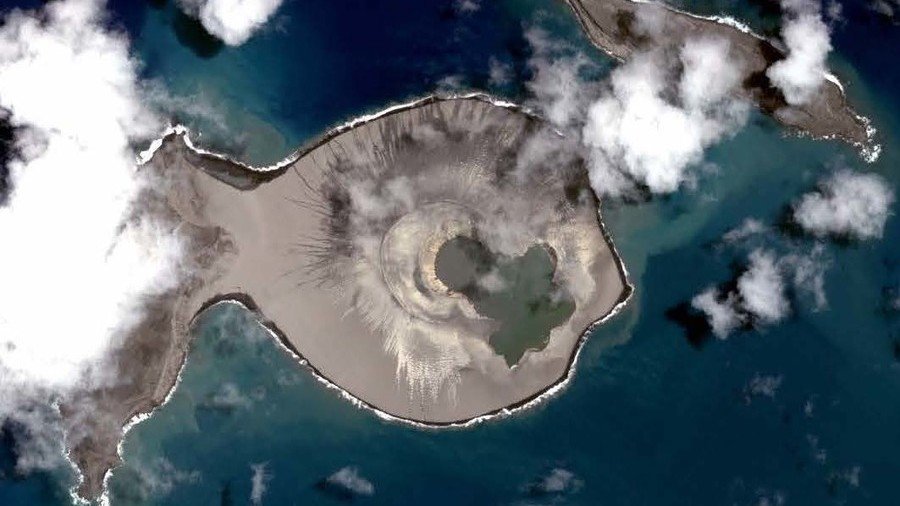Birth of new island could offer NASA clues about life on Mars (VIDEOS)

NASA is studying an almost brand new island on Earth, to figure out where it might find life on Mars.
The Tongan island, which is unofficially known as of Hunga Tonga-Hunga Ha’apai, formed as recently 2015 following the violent eruption of an underwater volcano.
The eruption sent a column of steam, ash and rock nine kilometers into the air and when it finally settled it formed a newborn island that is visible from space.
Experts originally thought the island would only last a few months before being washed away by the sea, but, a new study has suggested it will stick for 6-30 years.
This extended lease of life has allowed scientists to study it closely in the hope it will shed some light on where to find clues about life on Mars and in other parts of the solar system.
"Everything we learn about what we see on Mars is based on the experience of interpreting Earth phenomena,”explained Jim Garvin of NASA's Goddard Space Flight Center.
The Tongan island may help researchers understand volcanic features on Mars that look similar. pic.twitter.com/xeQKEfqde2
— NASA Earth (@NASAEarth) December 11, 2017
Garvin said similar features on the Red planet would be a prime location to search for evidence of past life.
"We think there were eruptions on Mars at a time when there were areas of persistent surface water. We may be able to use this new Tongan island and its evolution as a way of testing whether any of those represented an oceanic environment or ephemeral lake environment.”
The island, which grew out of the Hunga volcano, is the first of its type in the satellite era.













